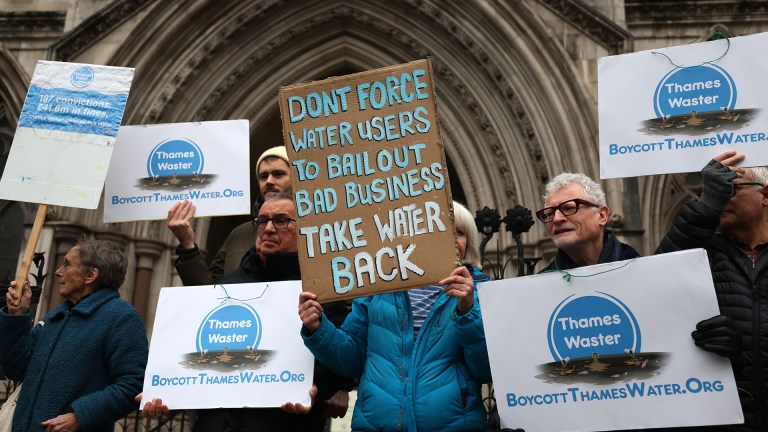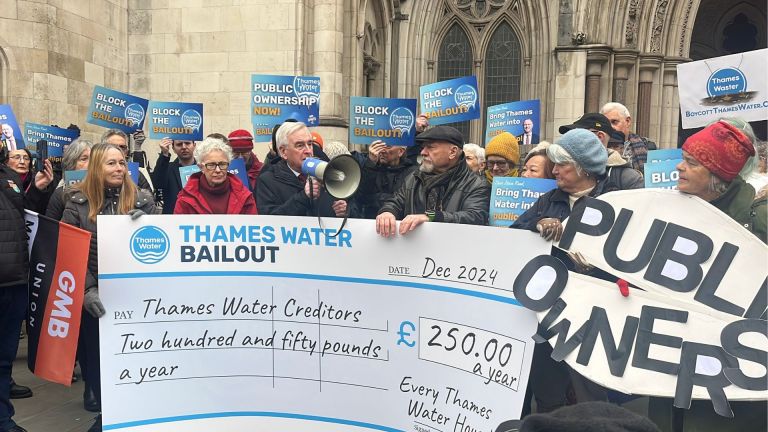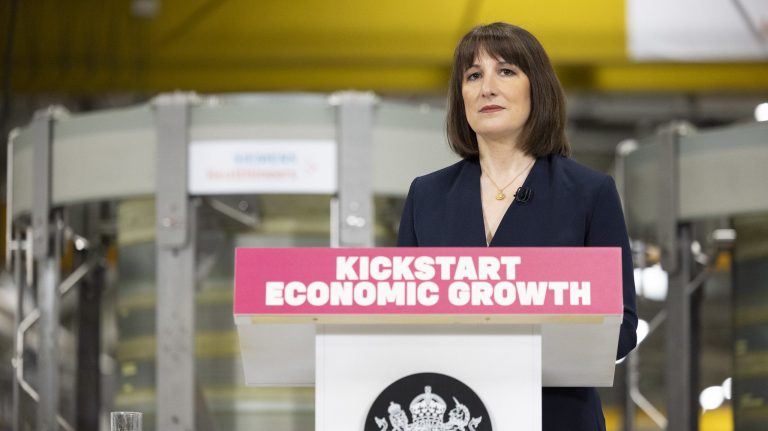What are the specific measures you are looking to implement?
There are several. We need to look at everything from the way – it’s boring – but the way in which we manage manures and slurries and also ensuring that we have the right type of mix of land uses for beneficial environmental purposes. But critically we need to look at this holistically.
But if we are going to move towards a more holistic framework, I’d be interested know why the government is still in favour of fracking considering that we know that it will cause a massive increase in carbon emissions and potentially the destruction of water security?
Well, one of the things about hydraulic fracturing is that hydrocarbons are likely to be part of our energy mix for some time to come. There is an argument that hydraulic fracturing is less damaging environmentally than some other methods of hydrocarbon extraction. Now I’ll keep an open mind, I’m guided by the science. One can’t afford to dismiss out of hand any particular technology if it can be an appropriate part of the mix. But I think it you’re right that proceeding with caution is the best approach.
Considering we’ve got 11 years left until climate change becomes irreversible why aren’t we mitigating all new fossil fuel infrastructure?
There are all sorts of things we can do, other than completely eliminating hydrocarbons. The government’s been investing in a variety of different technologies, all designed to help facilitate the decarbonisation of our economy from how we can increase investment in the right sort of battery technology to making sure that we have investment in ultra-low emission vehicles and a network of charging points for electric vehicles mandated with every new development.
Advertising helps fund Big Issue’s mission to end poverty
It’s concerning then that expansion at Heathrow has recently been approved, when the new airport is fully operational it will have a larger carbon footprint than some countries.
Again, aviation is going to be a critical part of the mix in the future and we’re working with not just airports but also airlines in order to see how we can minimise the damage that’s generated by emissions. We were discussing land use and forestry earlier, part of what one needs to do is to make sure that you can capture carbon emissions effectively and move towards net zero. Net zero doesn’t mean that there are no emissions. It just means that the emissions can be captured effectively.
I’m still struggling to see how through the creation of fossil fuel infrastructure the UK will be decarbonised. Does the government need to speed up on its policy creation to ensure that we meet net zero?
As I say, of all major developed economies, we’ve been the most successful in reducing carbon emissions, but there is more to do. As a government we were criticised just over a year ago when we said that we wanted to phase out the internal combustion engine and have every new car being a low or zero-emission vehicle by 2040, but now people recognise that that is absolutely the right approach. We do need a high level of ambition but we also need to be conscious of the need to work with existing industries to step up the pace while at the same time respecting the existing structure of our economy.
Many would say that they’ve lost confidence in MPs given the way Brexit negotiations have been conducted. Climate change is a big problem and it requires a big solution. Can citizens trust the government to tackle it at the scale needed?
Well, I think that there are a wide variety of views about the effectiveness of MPs in parliament. Ultimately, it’s action not words, it’s showing not telling that will determine whether this government is serious about dealing with the problems of climate change. I and other UK politicians have been clear in our critique of the US and other nations that have not been living up to their obligations because we recognise that we’ve both got to lead domestically but we’ve also got to provide a focus internationally for the right sort of action.
Advertising helps fund Big Issue’s mission to end poverty
In February, we had a heatwave that saw three raging wildfires in the UK. That’s a clear sign that the climate is changing the UK. Is that giving you an impetus to act far more urgently than we are at the moment?
I think it’s important not to overestimate the impact of individual climate events. You’re right that the heathland fires in February and indeed the long dry summer that we had last year sharpen people’s awareness, but I think it’s important to recognise that highlighting just one or two climate events, it’s possible for people who are sceptical about climate change to take those events out of context. The important thing is to put them in a broader context and to use the mass of scientific evidence to make the case.
I think it’s important that young people guide climate policy when it’s them who will suffer the most from inaction.
Yes.
What steps would you say are important to achieve young input, for example, would you support votes at 16?
I’m open-minded on the question. The really important thing is making sure people’s voices are heard in this debate. But also that we have an informed debate at every level. One of the consequences of young people raising their voices has been the increased salience and importance of environmental issues overall and climate change at the heart of it in our political conversation. I think we’ve seen more politicians respond positively to that. But as far as votes at 16 go I am open-minded, but not yet convinced.
Advertising helps fund Big Issue’s mission to end poverty










